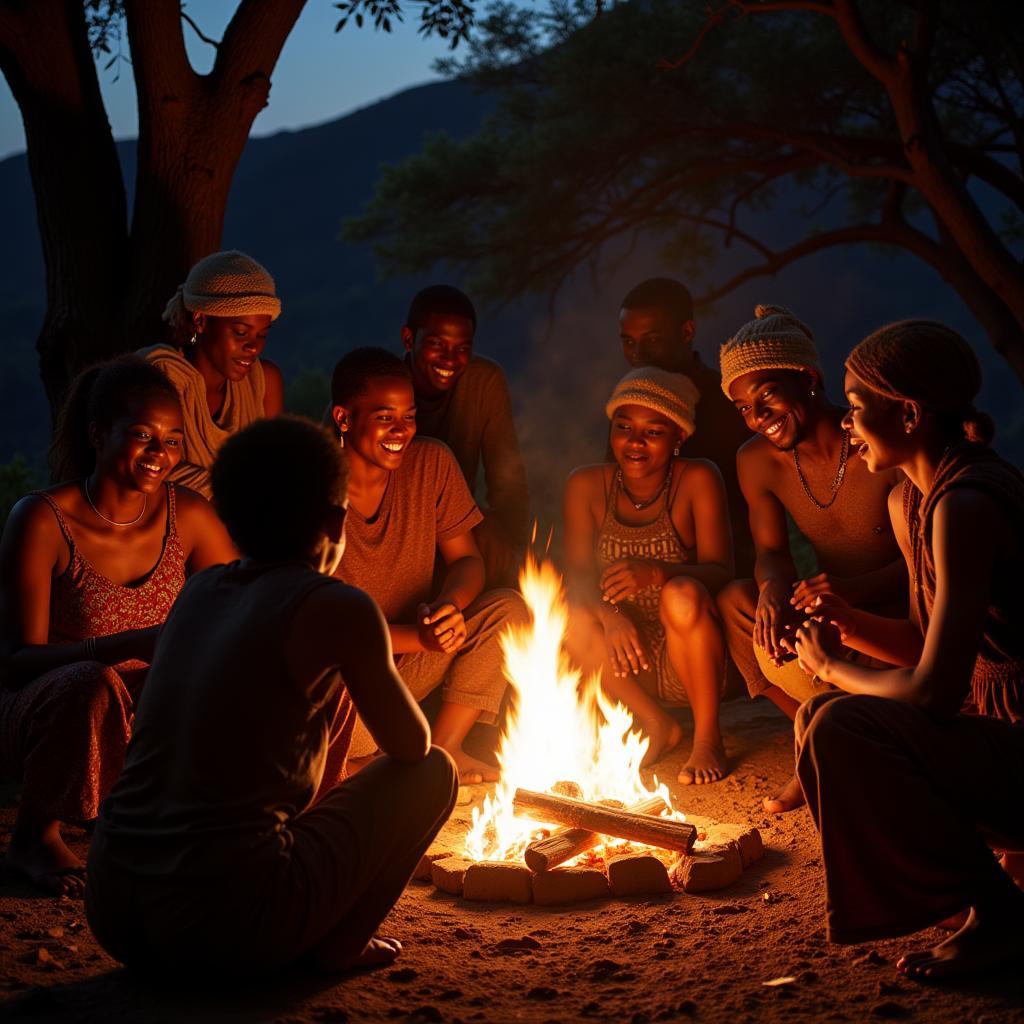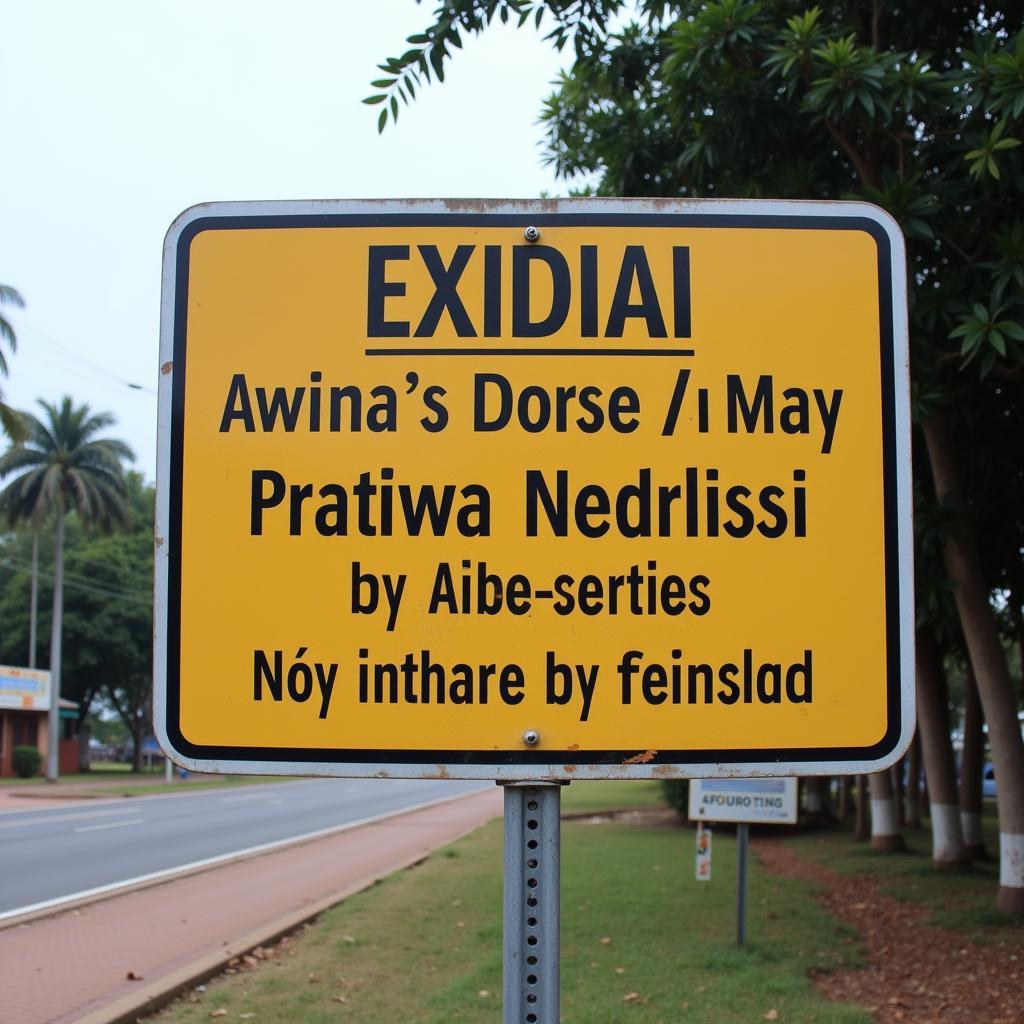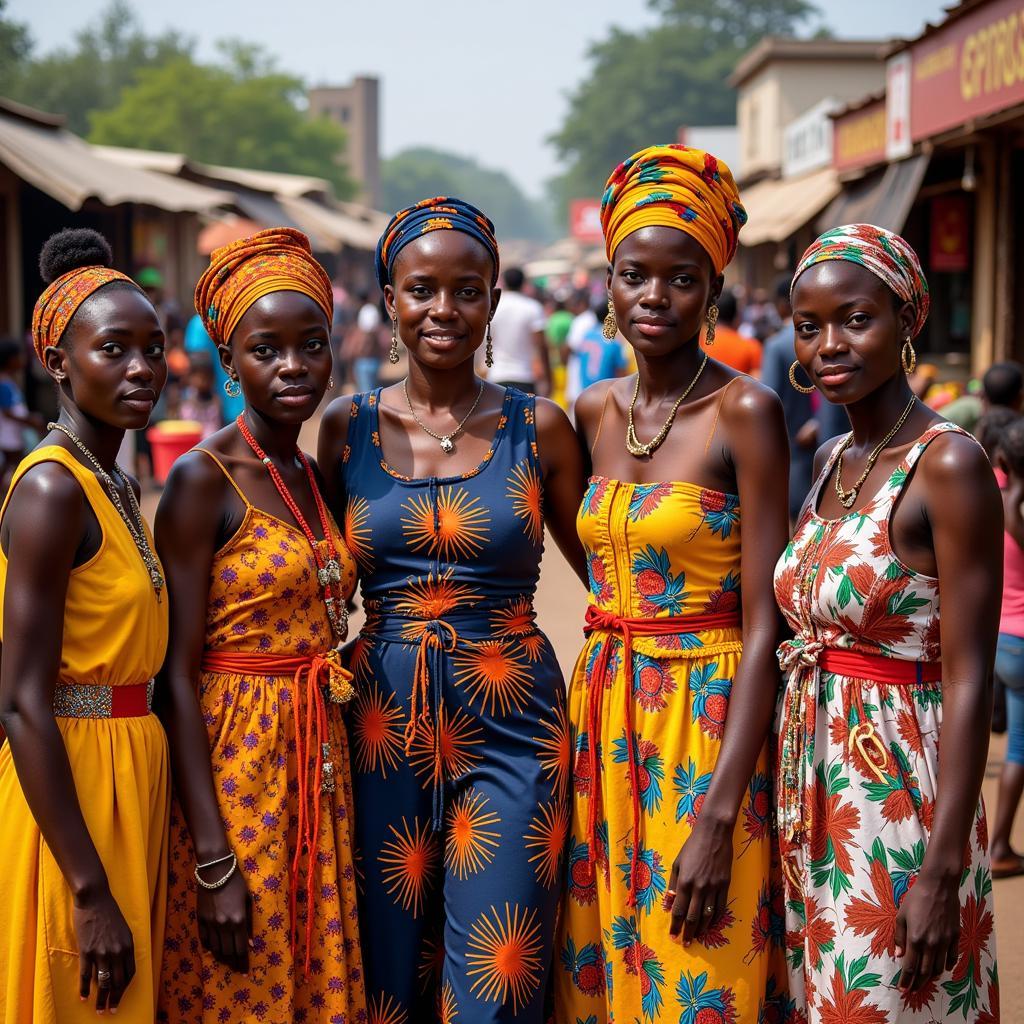African Culture Language: A Tapestry of Diversity
African culture and language are inextricably interwoven, forming a vibrant tapestry of over 2,000 languages and countless dialects. This rich linguistic diversity reflects the continent’s vast history, diverse ethnic groups, and unique cultural expressions. From the melodic tones of Swahili to the click consonants of Khoisan, African languages are as diverse as the continent itself.
The Role of Language in Shaping African Culture
Language is not merely a tool for communication; it is the lifeblood of culture, shaping worldviews, beliefs, and social structures. In Africa, language plays a pivotal role in preserving traditions, transmitting knowledge, and expressing identity. Oral traditions, passed down through generations, have kept history alive, embedding cultural values and societal norms within their narratives.
 Storytelling Tradition in Africa
Storytelling Tradition in Africa
Major Language Families of Africa
The languages of Africa are broadly categorized into four main families:
- Afro-Asiatic: This family, encompassing languages like Arabic, Berber, and Hausa, dominates North Africa and parts of the Sahel.
- Nilo-Saharan: Spoken across parts of East Africa, this family includes languages such as Maasai, Songhay, and Kanuri.
- Niger-Congo: This is the largest language family in Africa, covering most of sub-Saharan Africa. It includes prominent languages like Swahili, Yoruba, Zulu, and Igbo.
- Khoisan: Primarily spoken in Southern Africa, this family is known for its unique click consonants and includes languages like Nama and !Xóõ.
Each family exhibits its own grammatical structures, phonetic features, and vocabulary, reflecting the diverse origins and historical interactions of African communities.
The Impact of Colonialism and Globalization
Colonialism significantly impacted African languages. European languages like English, French, Portuguese, and Spanish were imposed, often becoming official languages and impacting education, administration, and trade. This led to the marginalization of indigenous languages and, in some cases, language endangerment.
“The imposition of colonial languages disrupted intergenerational transmission of indigenous knowledge systems,” notes Dr. Abena Asare, a linguist specializing in African languages. “It is crucial to revitalize these languages to preserve cultural heritage.”
Globalization further influences the linguistic landscape, with languages like English, French, and Arabic gaining prominence in international communication and commerce.
 Multilingual Sign in an African City
Multilingual Sign in an African City
The Importance of Preserving African Languages
Despite the challenges, there’s a growing movement to preserve and revitalize African languages. Many countries are adopting indigenous languages as official languages, promoting their use in education and media.
FAQs about African Culture and Language
1. What is the most spoken language in Africa?
While Arabic has the highest number of speakers in Africa overall, Swahili is considered the most widely spoken indigenous language, serving as a lingua franca in East and Central Africa.
2. Do all African languages use click consonants?
Click consonants, while a distinctive feature of the Khoisan languages, are not present in all African languages.
3. How are African languages being preserved?
Efforts include language documentation projects, promoting language use in education and media, and revitalizing traditional storytelling practices.
Exploring the Rich Tapestry
The languages of Africa are not merely a means of communication but a reflection of the continent’s rich cultural heritage and historical journey. By understanding and appreciating this linguistic diversity, we gain a deeper understanding of Africa’s vibrant cultures and the importance of preserving them for future generations.
If you’re interested in learning more about African culture and language, contact us! Our team is available 24/7 to answer your questions. Call us at +255768904061, email us at kaka.mag@gmail.com, or visit our office in Mbarali DC Mawindi, Kangaga, Tanzania.

